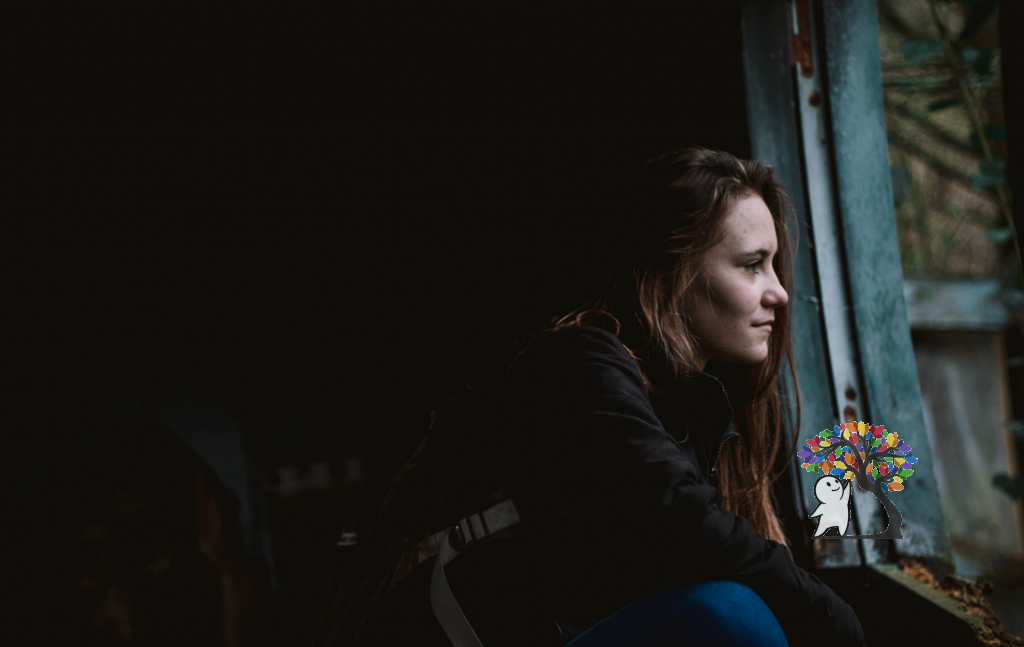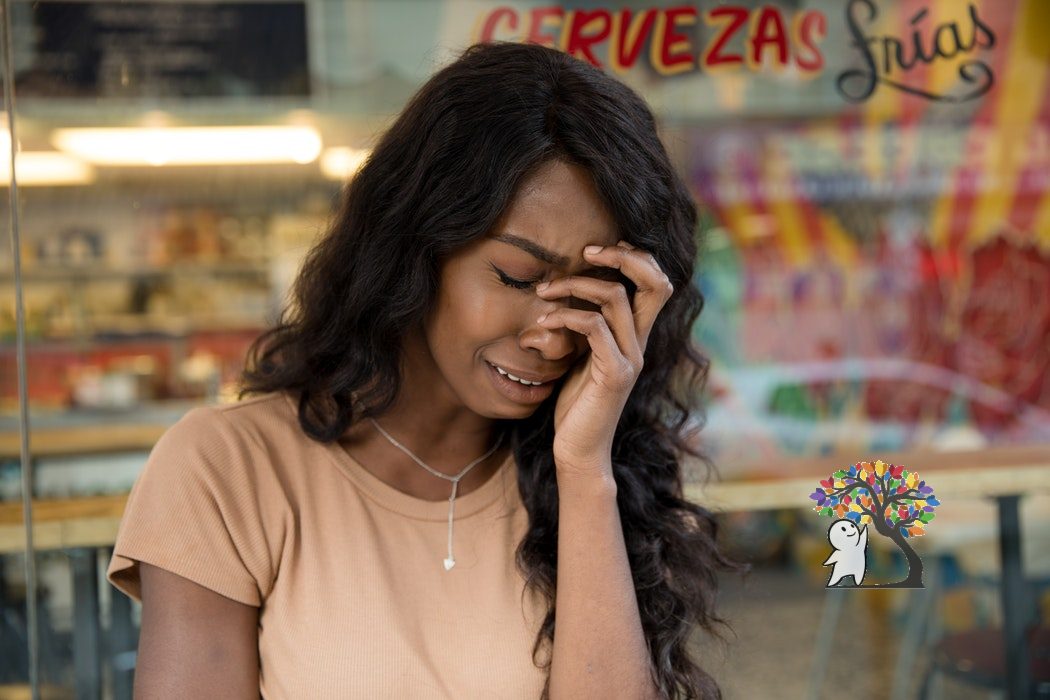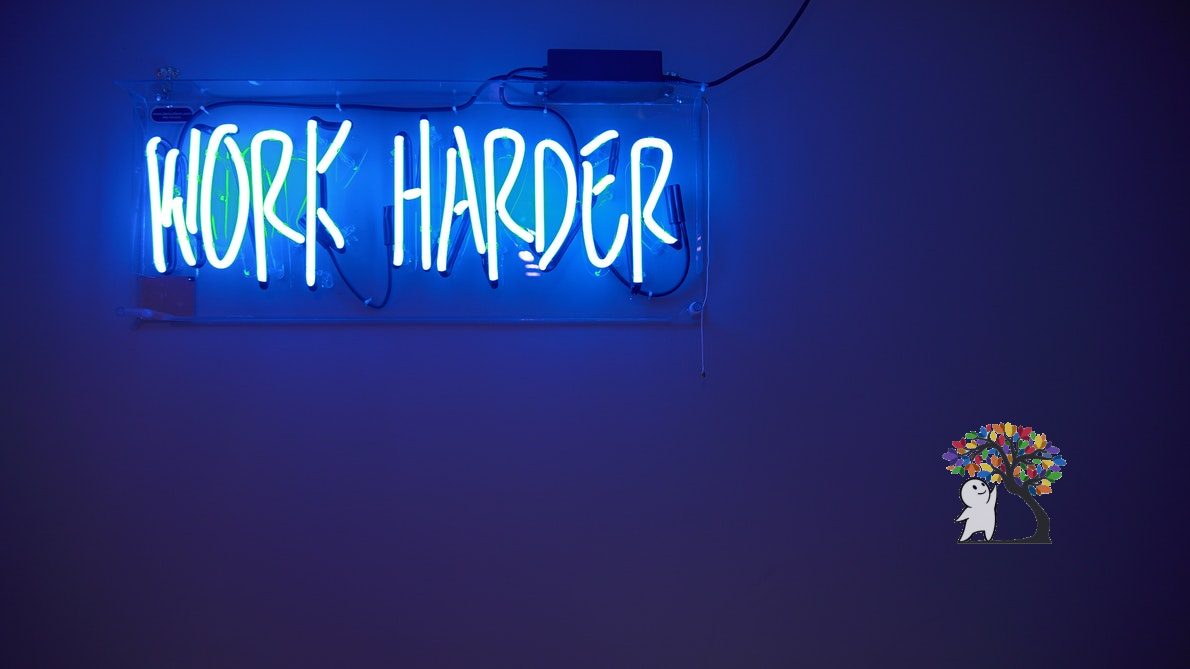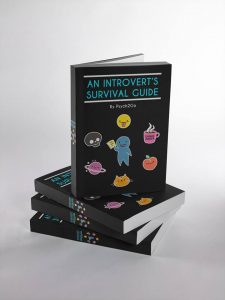6 Side Effects of Toxic Parenting

When Rapunzel left the tower and the evil witch she thought was her mother, she stepped into freedom and found adventure. But despite her escape, when she looks back, there will be an irreversible damage that lingers. Healing from dysfunctional families hurts. There’s no way around it. Even when you leave them and find another home elsewhere, you’re still carrying the weight of emotional baggage that scars you for life.
I don’t think it ever gets easier, but the best part about life is that we have the ability to create what we want from it. We can still do the things we love and go on. Healing comes from a place of understanding. If you grew up from a toxic background, we want to shed light on patterns and situations that are hard to understand, mainly because it’s painful. Psych2Go shares with you 6 side effects of toxic parenting:

1. You have a higher risk of developing an anxiety disorder.
When you grow up in a dysfunctional family, you’re at a higher risk of developing an anxiety disorder. According to a study done in 1998, researchers discovered that people who are exposed to toxic parenting on a consistent basis are more likely to develop generalized anxiety disorder (GAD), regardless of whether they were young or in their adulthood. Out of the 940 adults who participated in the study, researchers found that factors, such as income, education, and country of origin had no impact on whether they would develop anxiety, but the element of toxic parenting did.
When I was a young child, I often worried about setting my mom off. I was a clumsy kid, constantly knocking things off the table or tripping over my own feet. I would often spill juice on the tiled floor in the kitchen or on the hardwood in our living room, and the sugar would leave a sticky residue behind every time. Instead of telling my mom what happened, I tried to clean the mess without her knowing.
Some days, I was lucky that she didn’t notice, but more often than not, she always found out. Her anger soaked into me and left a painful mark. I was still a little girl when I tripped over a large toy and it cut deep into my feet. Scared to approach my grandpa, afraid he’d have the same reaction as my mother, I winced and kept quiet, even though I was bleeding a lot. Looking back, I know he wouldn’t have yelled at me. But everywhere I went, I’d see remnants of my mother’s anger.

2. You may suffer from post-traumatic stress disorder (PTSD).
The more abusive your parents are, whether it’s emotional or physical, the more likely you are to suffer from post-traumatic stress disorder (PTSD). Abuse causes people to be more alert and on their toes, because they anticipate more danger in the future. This leads to chronic anxiety, memories of abuse playing repeatedly, emotional numbing, and not being able to see the future because they are afraid they cannot escape the present danger.
On New Year’s Day, I thought I was going to die in my room when I felt unsafe to leave it. I didn’t eat or drink anything the whole day; my mother controlled what I was allowed to consume, and I didn’t feel safe using the resources she provided. I was afraid she was going to use them to guilt-trip me later on for it. It felt like I was slowly approaching a dead end—until I swallowed my pride, called my boyfriend at midnight for help, and the cops arrived.

3. You may be highly self-critical and blame yourself for everything.
If you are a highly sensitive person, then you may have grown up sacrificing your self-esteem for love. Parents who exercise conditional love will make their kids feel like they’re not worthy of love. As a result, they’re often pressured to prove themselves. If they make a mistake or do something that upsets their parents, they will be highly self-critical and blame themselves. But, this is how they remain hopeful. When kids believe that once they fix something about themselves or get better at something, then maybe their parents will start treating them better.
I’m a workaholic. Unfortunately, it doesn’t just stem from passion. Part of the reason why I put so much care and effort towards my work is because in the back of my head, I still want my parents to be proud of me. Somehow, I think that once I achieve all of my dreams, it’ll help bring my parents closer to me. It’s not fully wrong. But I have to ask myself, How close is close enough? I think we want to love each other better, but it’s still a delicate dance.

4. You’re more likely to experience health problems.
According to a study done in 1985, researchers discovered that those who were in dysfunctional relationships were at a higher risk of developing heart problems, compared to those who didn’t grow up in toxic families. In addition, the chronic stress you experience from toxic parenting can affect your immune system. Psychologist Dr. Ramani Durvasula stated that constant arguing or disagreements in close relationships can weaken your immune system. The more tension and abuse kids experience from their toxic parents, the more likely they can get sick.

5. You have a hard time saying no because your boundaries weren’t respected.
When you grow up in a dysfunctional household, boundaries are non-existent, because they’re often crossed. If you grew up with a narcissistic or alcoholic parent, this is especially the case. Perhaps they often depended on you to take care of things around the house, or maybe they never respected your individuality because they always saw you as their own personal product. It’s hard to say no when you’re not allowed to have control over your life.

6. You may develop an insecure attachment that affects your relationships.
Growing up with toxic parents can influence you to seek comfort and love elsewhere, or it can cause you to fear relationships when you’ve developed trust issues. Insecure attachment exists in two forms: anxious and avoidant. Anxious attachment is when the individual latches onto someone strongly. They feel as though they have to constantly prove their own worth and chase after the person. Insecure attachment, on the other hand, is when the individual becomes self-reliant and refuses to depend on or let others in. When you grow up with toxic parents, it colors and affects the relationships you find yourself in.
Are you experiencing any of these side effects from toxic parenting? We understand how harmful they can be and want to help. Please share your story with us by leaving a comment down below!
Want to say hello or send a personal message? You can reach the author at catherine@psych2go.net. ♥
If you enjoyed this article, then you may also like 8 Common Characteristics of a Dysfunctional Family or 10 Ways to Deal with Toxic Parents.
Looking for more reading supplies? Please check out our new e-book: An Introvert’s Survival Guide! Get your copy today!

Love our content and want to continue supporting us? Visit our Patreon!
References:
Chavez, H. (2018). 13 Signs of a Toxic Parent that Many People Don’t Realize. Lifehack. Retrieved March 14, 2018.
Florio, G. (2016, February 24). 5 Ways Having Toxic Parents Affects Your Health. Bustle. Retrieved March 14, 2018.
Malkin, C. (2016, September 30). 8 Common, Long-Lasting Effects of Narcissistic Parenting. Psychology Today. Retrieved March 14, 2018.



Is there an article about dreams here? I have some questions I’d like to answer privately.
Hi Chris, I believe there is. Here is an article about dreams written by Sophie: https://psych2go.net/10-amazing-facts-you-didnt-know-about-dreams/. I hope that helps. For any private messages, you can reach me at catherine@psych2go.net. For other staff members’ contact information, you can find their emails on our Careers page under About. I hope that helps! Have a great day and thanks for being a part of our community. 🙂
Holy cow I have learned why I do what I do. I was always “praised” for my negative issues never positive so I grew up (36 years old and still have these issues) never caring about anything pertaining to me because I believe I will fail anyways so why bother trying. THANK YOU so much for this article. Oh and I’m definitely self reliant.
Hi Danielle, thank you so much for reading and sharing your thoughts with us! I’m glad the article was able to provide you with some insights. Yes, unfortunately, age is just a number and doesn’t give side effects an expiration date. That’s why we wanted to shed light on the importance of helping our community become familiarized with the side effects, so they know that it’s not their fault. If there’s any specific content you’d like to see us create more in the future, please let us know! Thank you again and I hope you have a great day! ♥
I could write a book (in fact I may) on toxic parenting and how it led to my lifelong fibromyalgia, not diagnosed until I was about 30. My mother was physically, verbally and emotionally abusive and was clinically depressed, in and out of psych wards and always seeing therapists. My father was narcissistic and sexually abused me and my 2 sisters. All 5 of us kids constantly walked on eggshells around our mother, who could turn mean at a moment’s notice, would chase us around the house and beat us even though we hadn’t done anything. I tried everything to get her love except have the nerve to tell her off. I ended up with chronic back pain and eventually had to go on disability. This article is spot-on and I appreciate you posting it.
Hi Laurie, thanks so much for reading and sharing your thoughts with us. I’m really sorry about everything you’ve been through. I hope you’re in a safer place now. That’s all I want for you and all of my readers. If there’s any more content you’d like to see more of, please let me know. I hope things get better, really and truly. ♥
Every thing I have read here I have been through and have. Thank you for sharing this to enlighten others I would share my story but would rather it be private for all others know I’m a happy person enjoying life. Thank you xx
Hi Sophie, I understand. Thank you so much for reading and still sharing your thoughts with us. I hope you continue to be happy and do the things you love. ♥
My formative years were split between two households. My mom is very nurturing, supportive and caring, where my dad seemed to believe that if a child truly respects their parent, they should have a healthy amount of fear. He actually said this to me.
I’m an only child between my mom and dad; they never married, but had been good friends throughout my childhood. However, there was always a disconnect from the time I went to my dads house for the weekend, and when I went home. There were things I felt I couldn’t tell my mom, like how I wasn’t allowed to eat with everyone else, that I was frequently punished for not finishing my larger than life portions, how I didn’t have my own bed, that I slept on the clutter covered floor of the room belonging to the daughter of my dad’s girlfriend. Pretty sure that’s where most of my bug phobias came from actually.
How I often took the blame for things I didn’t do, or wasn’t present for, and my word meant nothing. I was punished for eating pop tarts. Because the girlfriend bought them for *her* kids.
And that’s only the tip of my story iceberg. I think that only covers until about age 10…
And I tell ya, there is a lot of therapy that comes with it. Bright side, my mom is FANTASTIC! Virtually no complaints!
I’m always a huge advocate for getting care, talking out your trauma. It helps. SO MUCH. Some times, it takes a long time, and a lot of work, and the right therapist. But it’s well worth it.
Hi Danielle, thanks so much for reading and sharing your story with us. I’m so glad to hear that therapy has been working for you! 🙂 That’s inspiring that you’re healing from the toxicity you were exposed to. I’m also glad you have a supportive and nurturing mother. ♥ Thank you for your words of encouragement and positivity. They’ve made a difference!
I had almost all of that. Been almost 20 years my mother called me a failure for didn’t met her expectation. All my sisters had a tendency to self-hurt too. At first I blamed all to her, but now I accepted it and try to think more positively each day.
Hi Angelina, thanks so much for reading and sharing your story with us. I’m sorry to hear that you and your sisters have experienced self-hurt from your mother’s criticism. I think it’s very wise and mature of you to go beyond blaming your mother and thinking more positively each day. That’s what I’m striving for as well today. 🙂 ♥
I have all these side effects. My mom was and is always sad, memories of her being happy are so rare .
I grew up me and my two siblings blaming ourselves for that, and to be more sure, we asked her why is she like that all she could answer is that we always were the cause.
We didn’t help her enough in the housework or we didn’t stay with her all day… She is so sensitive and we do undestand her, she didn’t like me having alot of friends so i ended up with only her trying to be one. And with my dad always absent i felt like she was my both parents. She is always trying to model me as she wants and i’m becoming more like her i’m afraid that i’m repeating her life… It’s a long story.
All I can say is that growing up with toxic parents is difficult , and what’s harder is that you can’t feel it right away you’ll only know what happende when younre a little older and too damaged.
Hi Imane, thanks so much for reading and sharing your thoughts with us. Well said. Yes, I believe things can only be seen and understand in retrospection. Somehow, damage always makes someone a little more wiser when they can understand the source of hurting. But moreover, it’s important to learn how to move forward from it. I think it’s normal to fear ending up like our toxic parents. But, I believe we are also more than our fears. I know it might not always seem like it, but that’s why it’s so important to find meaning in life and hold onto the things that do offer us comfort and purpose. I hope things get better, really and truly. ♥
[…] If you enjoyed this article, then you may also like The 5 Types of Children from Toxic Families or 6 Side Effects of Toxic Parenting. […]
This article is really on point. The few things that don’t apply to me seem to apply to my sister. I always felt best in a long-term relationship, and she consistently avoids relationships. She is often ill and stressed while I’m more depressed. Yet we both struggle with perfectionism, anxiety and self-critisism.. It all makes sense now.
Hi Maria, thanks so much for reading and sharing your story with us. I’m sorry to hear that you and your sister are struggling with perfectionism, anxiety, and self-criticism. I struggle with all of those as well. I’m also like you in that I prefer long-term relationships as well, rather than avoiding them. Toxic parenting affects us all similarly, yet differently, too. It’s very complex, to say the least. But, I hope things get better for you, really and truly. ♥
Yeah, its true with me. N all of these have happened. And now i feel like m lost. N broke. Dysfunctional. Can’t be loved anymore. 🙂
Hi Rahini, I’m so sorry you’ve been through all of that. I don’t think it’s true that you can’t be loved anymore, though. Perhaps not from your parents, but someone else has the capability to love you. I hope things get better for you, really and truly. ♥
I relate to this so much, unfortunately! All of this fits me so much💔😢I grew up in a toxic environment with my mom and my step-dad. My relationship with my mom is great, but my step-dad was a narcissist and was verbally & emotionally abusive to myself as well as my twin sister. Even today, I am still struggling with the reality of it all and wrapping my mind around it. I can speak to the relationship aspect as I have experienced both…my major attachment caused him to run and I am constantly stopping myself from having feelings or liking someone because I am so scared to get attached, fearing they will eventually get tired of me and leave. I don’t like depending on others and became self-reliant very quickly growing up and I am scared to depend on someone, especially emotionally, because I am scared it will be used against me…my vulnerability. I didn’t realize just how bad things were growing up until we left with our mom this past year and had the opportunity to look back on growing up and my teen years. At 20 years old, the memories and guilt still plague me that maybe if I had done something differently, we would have been able to have the relationship I want so bad with our step-dad.
Sorry, I know it’s a lot of information and I probably shouldn’t be saying all of this, but sometimes it helps to write about it, knowing just maybe there is someone out there who’s experienced this and understands.
hey, contact me
Hi Ashlee, thanks so much for reading and for opening up about your story. I’m so sorry that you, your mom, and your sister have been through a lot. Narcissistic parenting is a tough one to recover from, especially when your needs are constantly un-met. It’s scary, isn’t it? You never know what you really go through until you look back sometimes. But, I’m glad you guys were able to detect the problems. I think being self-aware is ultimately what will help us heal from toxic parenting. And no need to apologize, really. I’m just glad you felt comfortable enough to open up. Your vulnerability may be something that scares you a times, but it’s also what will ultimately help you get better. Thank you for being a strong example for those who struggle to still open up. ♥ I hope things get better, really and truly.
Its been happening to me since high school and now im already 22 but my mother still treats me as i piece of shit. She always says mean things to me especiallt when i just made a little mistake and i feel depressed, my cousis too and my aunt and uncle is on the same side with her. They always judge me for all the wrong things that ive done but not for the good things that i did. They always see me as a failure especially to my mom if i didnt agree or obey with what she is saying. And its hurts me more than you know that oftentimes im thinkijg of ways to die. I dont know. They treat me like a piece of shit that they can control and order around, treat as if i dont have my own freedom and space and so on.
contact meee
Hi Chasteen, thanks so much for reading and for opening up about your story. I’m sorry to hear that your mother and other family members treat you poorly. Judgment hurts when it’s not provided in a constructive, nurturing manner. I’m familiar with feeling like you’re not good enough, but know that their thoughts about you do not reflect your true potential. This is something that I had to learn slowly over time. I hope one day you can get out of your toxic environment. In the meantime, please hang in there, and if you ever need anything, please let me know. ♥
[…] you enjoyed this article, then you may also like 6 Side Effects of Toxic Parenting or 10 Ways to Deal with Toxic […]
Now I realize why I’m a perfectionist, always afraid of failure and inconveniencing anyone, ever. I say sorry too much, I don’t know how to handle emotions so I just shove them down and try and forget about it, until something (usually insignificant) happens and they all come back. I have friends but I never open up to anyone for fear of annoying them. I relate to all of these points so well, it’s making me sad. Whenever I’m depressed my dad compares my situation to soldiers with PTSD or with starving and beaten children, thus invalidating my feelings. I have serious trust issues and I’m afraid of intimacy. Maybe I’ve already explained everything okay, but I always feel like I don’t know what my own thoughts are. I don’t know. I don’t know if me thinking it could be worse is a part of it. eesh that’s a lot lol
Hi Tori, thanks so much for reading and opening up about your story. Yes, I can be a bit of a perfectionist, too, so I can totally relate. I also apologize, even when things aren’t my fault at times. I’m sorry that your dad criticizes you and compares your situation to “others who have it worse.” I think your feelings are perfectly valid and for him to make you feel guilty for having bad days is a cruel form of punishment. It doesn’t help and I wish people who often do that would try to be more understanding. Rather than encouraging the idea of rigidity, your father fails to provide proper emotional nurturing. Sometimes, it scares me the way the world often compares situations to others. It doesn’t necessarily make the hurting hurt less, and I wish people knew it wasn’t an effective way to establishing happiness.
I started college 4 years ago and I started drinking excessively to the point where i would always black out and my friends took care of me. I made a lot of mistakes because I’m a mad drunk, and I would go off on my friends and lost a couple of them. My dad is an alcoholic and tried committing suicide before. I never thought of my drinking problem as a bad thing until I embarrassed myself in front of my parents, got super drunk, fought my best friend and got kicked out of the venue we were at. I was so embarrassed. I realized I get drunk to get lost not to have fun. But I have so much bottled inside me because I’ve gone through a lot. I lost my ex boyfriend for being drunk too… I think I have a problem and I haven’t realized it till now…
I definitely see how I have the anxious attachment; but how do we cope?
I didn’t like my mom since a very young age and I dislike her more every day. At age 36 I realised, searching for answers, that she always were and still is toxic narcissistic parent. Except for number 4 at this stage in time I am 100% effected. I am extremely self critical because of my moms constant criticism still today. I am trying to overcome all of it. It is completely impossible with her manipulative way of controlling me. I don’t see any hope at all.
What do you do when both your parents are toxic and don’t treat you well or respect you and you live with one of them.. I’m 27 almost 28 and they still don’t see me as an adult or even a human being with feelings and needs. I haven’t talked to my dad in 2 and a half years. But i live with my mom and i found out she’s the same way as him..i didn’t want this. Why is it happening to me? I’m dealing with all those effects now. I want to be happy and feel like i can be myself.